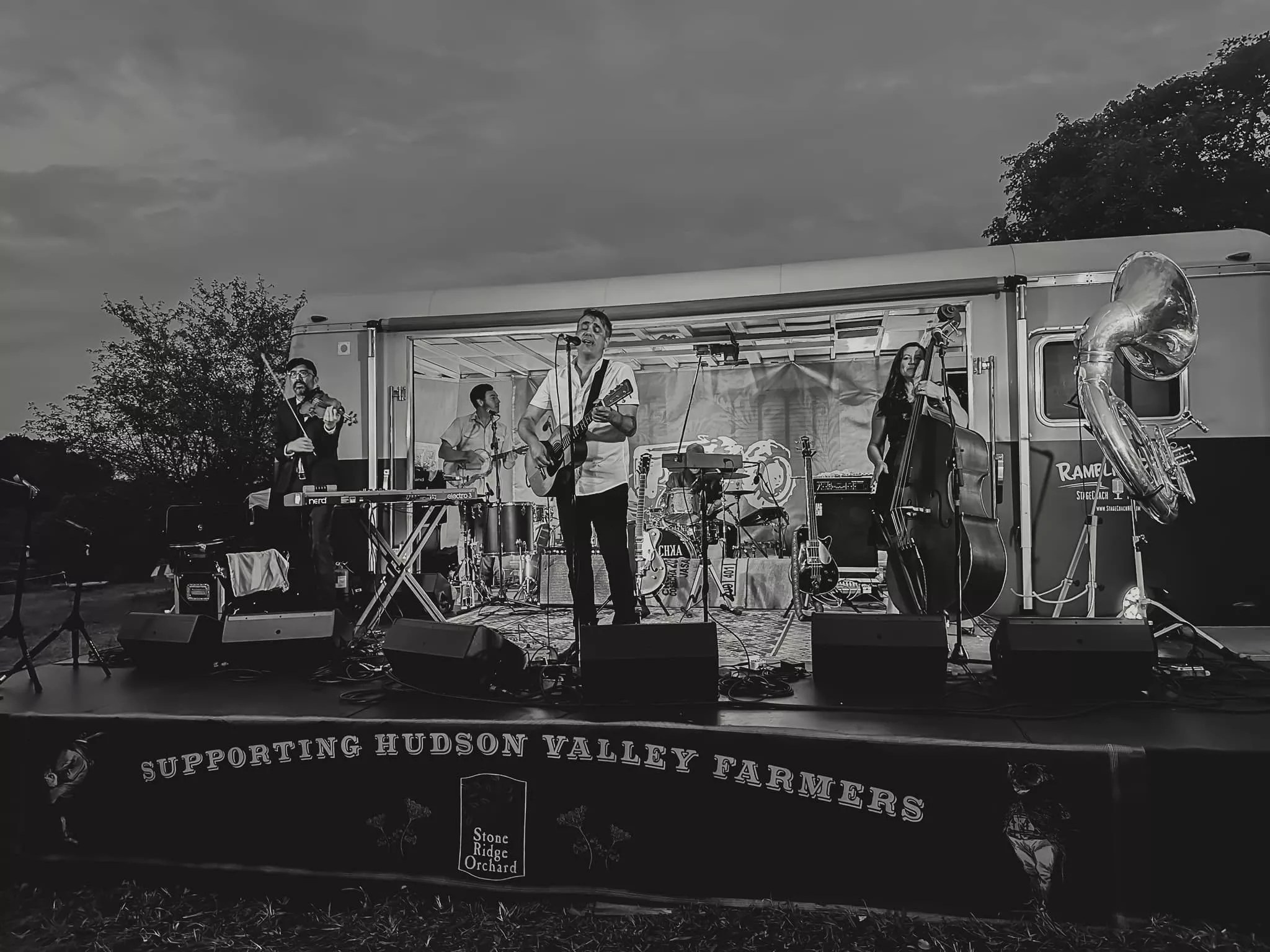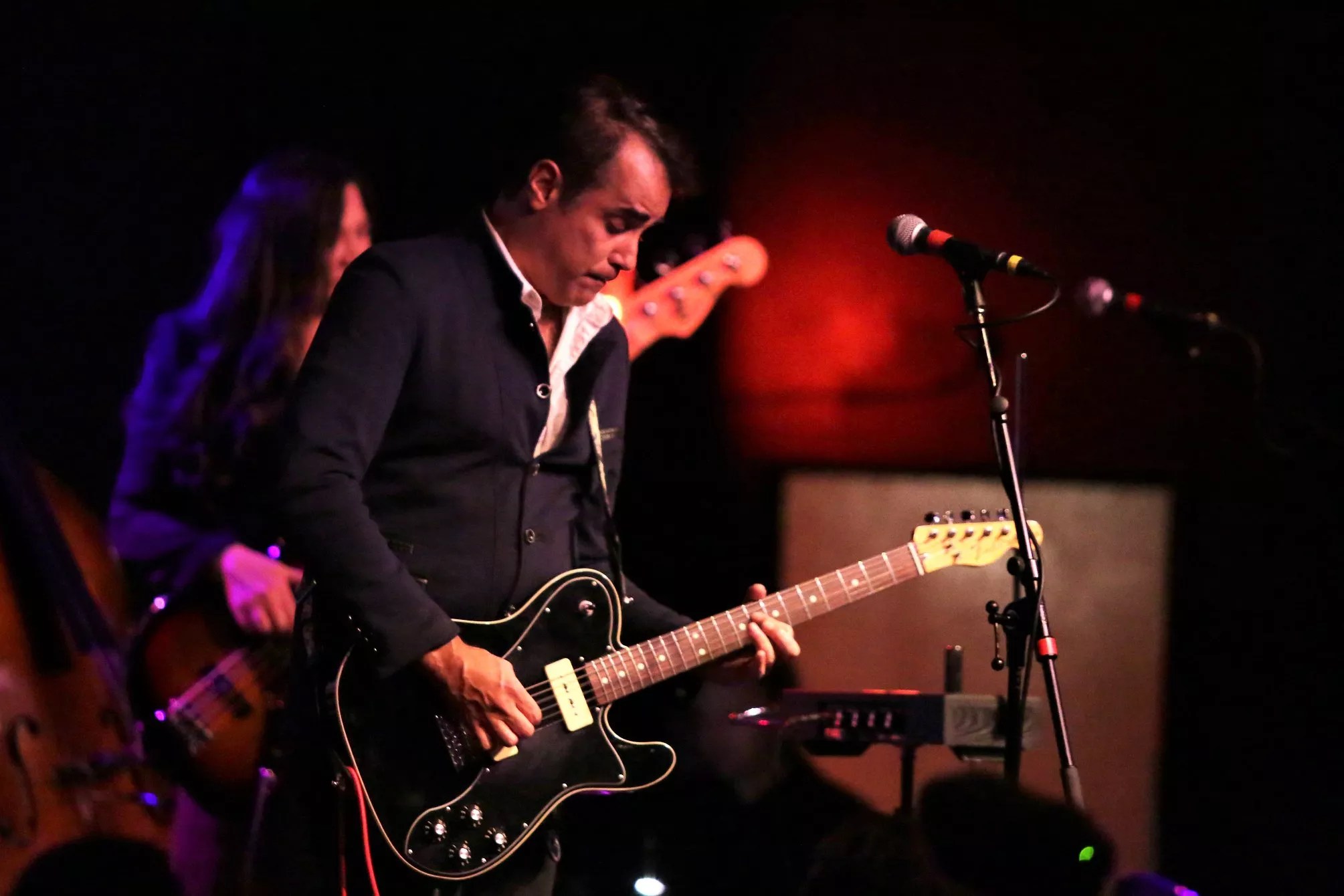
Courtesy DeVotchKa

Audio By Carbonatix
It’s hard to believe now, but in the not-too-distant past, bands didn’t have the luxury of dropping thirty-second clips on social media and blowing up instantaneously. The technology simply didn’t exist. Going viral back then meant consistently releasing records and toiling on tour.
Nick Urata, the frontman of Denver indie group DeVotchKa, remembers those days well and how the band’s third album, How It Ends (2004), unexpectedly found an audience through the Los Angeles station KCRW. DeVotchKa caught the attention of young Hollywood directors Jonathan Dayton and Valerie Faris, who liked what they heard and eventually tapped the band to score the duo’s 2006 film, Little Miss Sunshine, starring Steve Carrell and Abigail Breslin.
“KCRW latched onto it and played a couple of tracks, and that’s how we were heard by the directors of Little Miss Sunshine, who basically used the album to score that movie,” he recalls. “That was our way in the back door. A lot more people heard it because of that movie. It was off to the races after that.”
After the film premiered at the Sundance Film Festival, the soundtrack, which also features Mychael Danna, earned a Grammy nomination for Best Compilation Soundtrack. The breakthrough led to Urata working on film scores full-time, as well.

When he’s not fronting DeVotchKa, Nick Urata is busy with his day job of writing film scores.
Courtesy DeVotchKa
DeVotchKa – whose name is taken from the Russian word for “girl” – is now celebrating the twentieth anniversary of How It Ends and will play the album in full, something the band has never done before, during two shows at the Bluebird Theater on Friday, December 22, and Saturday, December 23. Denver singer-songwriter Claire Heywood is also on the Saturday bill.
“That’s the album that brought us the biggest audience,” Urata reflects. “It opened a lot of doors for us.”
A followup to the band’s 2003 release, Una Volta, DeVotchKa’s third full-length saw Urata come into his own as a songwriter. “I mean writing stuff that I actually liked to play for people,” he explains. “When I started writing the crop of songs for How It Ends, I really turned a corner. I remember it was like nothing I ever felt before when I actually got the band in the studio and got those songs on tape.
“I remember driving back in our crappy Astro van just having this sense of relief and accomplishment that I never had,” he continues. “Sure enough, that was the album that really connected with people. It’s still our most-listened-to stuff.”
But at the time, no record label was interested in putting it out, so the band released it independently. “As far as our career goes, we did have some pretty on-top-of-it management. They pitched that album to every major record company in America, and everyone turned us down,” he recalls. “We were like, ‘Fuck it,’ so we put it out ourselves. KCRW was one of the only stations to play it.”
The rest, as they say, is history. DeVotchKa’s fourth offering, A Mad & Faithful Telling, was released by ANTI-Records, Epitaph‘s sister label, in 2008, and peaked at No. 9 on Billboard‘s Heatseakers chart.
“We had been slugging it out for years at that point in our van, driving from crappy indie-rock venue to crappy indie-rock venue around the States,” Urata says. “To actually finally have an audience and a record label, for me, I just wanted to continue the trajectory of songwriting that I was on…and get out another crop of interesting songs with good lyrics.
“That’s unromantic, but it was an exciting motivation,” he continues. “Finally, our hard work had paid off. We knew people were listening, so it just made us hone our craft that much more.”
Urata and DeVotchKa, which was originally a backup band for such burlesque acts as Dita Von Tease, have since worked on several film scores, including a song for upcoming animated film Stitch Head. Urata most recently wrote the music for Hulu original comedy Quiz Lady, starring Sandra Oh, Awkwafina, Jason Schwartzman and Will Ferrell.
It makes sense that Urata makes his living blending music and movies, as he’s always tried to incorporate a “romantic spaghetti Western movie-score feel” with DeVotchKa, he says. “I wanted to somehow bring that into a three-minute song.”
The two endeavors continue to influence each other in the sense that he’s always focused on making music. There have even been times when he’s brought a discarded film-score piece to the group, which also includes Tom Hagerman (violin accordion, piano and melodica), Jeanie Schroder (upright bass, flute and vocals) and Shawn King (drums, percussion, accordion and organ), to use.
“The great thing about film scoring is, what’s going on in your head has nothing to do with it – it’s what’s on the screen and what’s in the script, what the actors are doing on film. It’s like a ready-made inspiration for writing,” he explains. “Whereas [when] I’m writing a song or sitting there with my little tablet or tape recorder, it’s just you and your past that you have to work with.
“A lot of times a piece of music will get thrown on the cutting room floor for a film, and I’ll have a great song to bring to the band,” Urata concludes. “It’s very inspiring and creative to have both sides now. It doesn’t get stale.”
DeVotchKa, 8 p.m. Friday, December 22, and Saturday, December 23, Bluebird Theater, 3317 East Colfax Avenue. Tickets are $29.50.